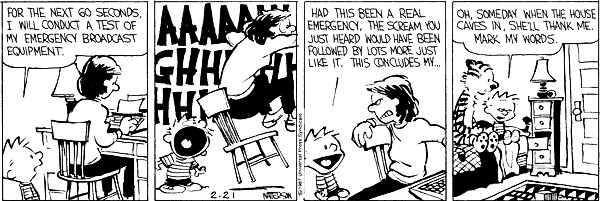
These days it seems everything is portrayed as urgent and requires immediate response. We seem to be living in a constant state of emergency.
I am not talking about bushfire emergencies here or flood emergencies or even climate change emergencies.
I am talking about the crisis caused by heavy traffic, lost homework, forgotten medical appointments and communication glitches.
I am talking about the crisis if an email or phone call is not replied to within an hour or action taken immediately.

I am talking about changes in pick-up details at the end of the school day that we are informed of fifteen minutes before the buses arrive.
I am talking about notes that did not get signed on time.
I am talking about when two parents give our staff two very different, even conflicting, messages for their child on the one day.

I am talking about how we are criticised when we are required to work with other agencies and have no control over resolution timelines.
I am talking about what happens when everything is labelled “urgent,” so that our people are unable to do the really important things they are employed to do because every phone call and message they receive is a “crisis”.
Sometimes the words of the Chris Rea song must seem pertinent to our staff:
“I got eight little fingers and only two thumbs
Will you leave me in peace while I get the work done.
Can’t you see I’m working
Oh, I’m working on it.”
Because most people now carry mobile phones everywhere and use them 24/7, we have become accustomed to sending out messages, questions and demands on the spot and expect an immediate reply, response or action.

People sit in meetings tapping away at their mobile devices, and catch up on phone calls while walking to and from the bathroom. Technology has turned us into rapid-response junkies. In our clouded state of ongoing everyday stress, everything seems equally important and time-pressing and we require others to share our sense of urgency.
We have all been in situations where every phone call and email we get is an emergency that, if not handled right away, could result in an unimaginable crisis.
What we sometimes forget is that our demand to “fix this now!” can actually be counterproductive. Push someone who is dealing with multiple complex tasks too hard and you compromise their ability to think clearly, thoroughly and imaginatively, which increases the chances of them not being able to meet your urgent requirements.
“Well they’re coming from above me
And they’re coming from below
Yeah, they’re in there right behind me
Everywhere that I go.”
Please be aware that responding immediately to your current “emergency” may compromise a member of staff’s capacity to deal with their other work or a very real emergency.
Please also be aware of the impact the volume and tone of your demands may have on the person receiving the phone call, email or message.
Try to remember that, while recognising that the matter you have raised is important to you, our staff are doing their best.
“Oh, oh can’t you see I’m working on it
Oh, oh I’m working on it.”

Terry Muldoon
Principal
Want to share your thoughts on this story, or do you have something you’d like to add? Email me at principal@scas.nsw.edu.au

